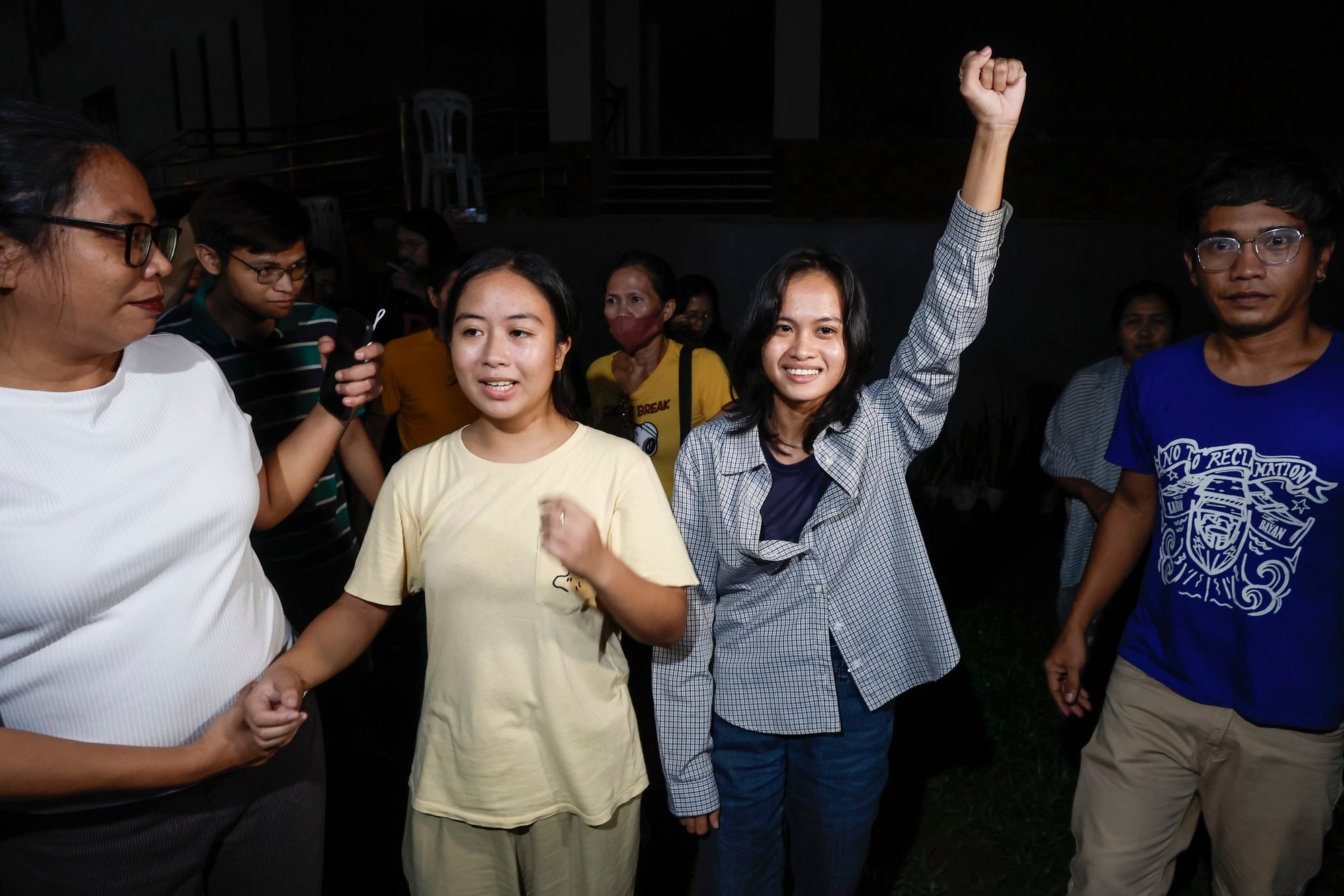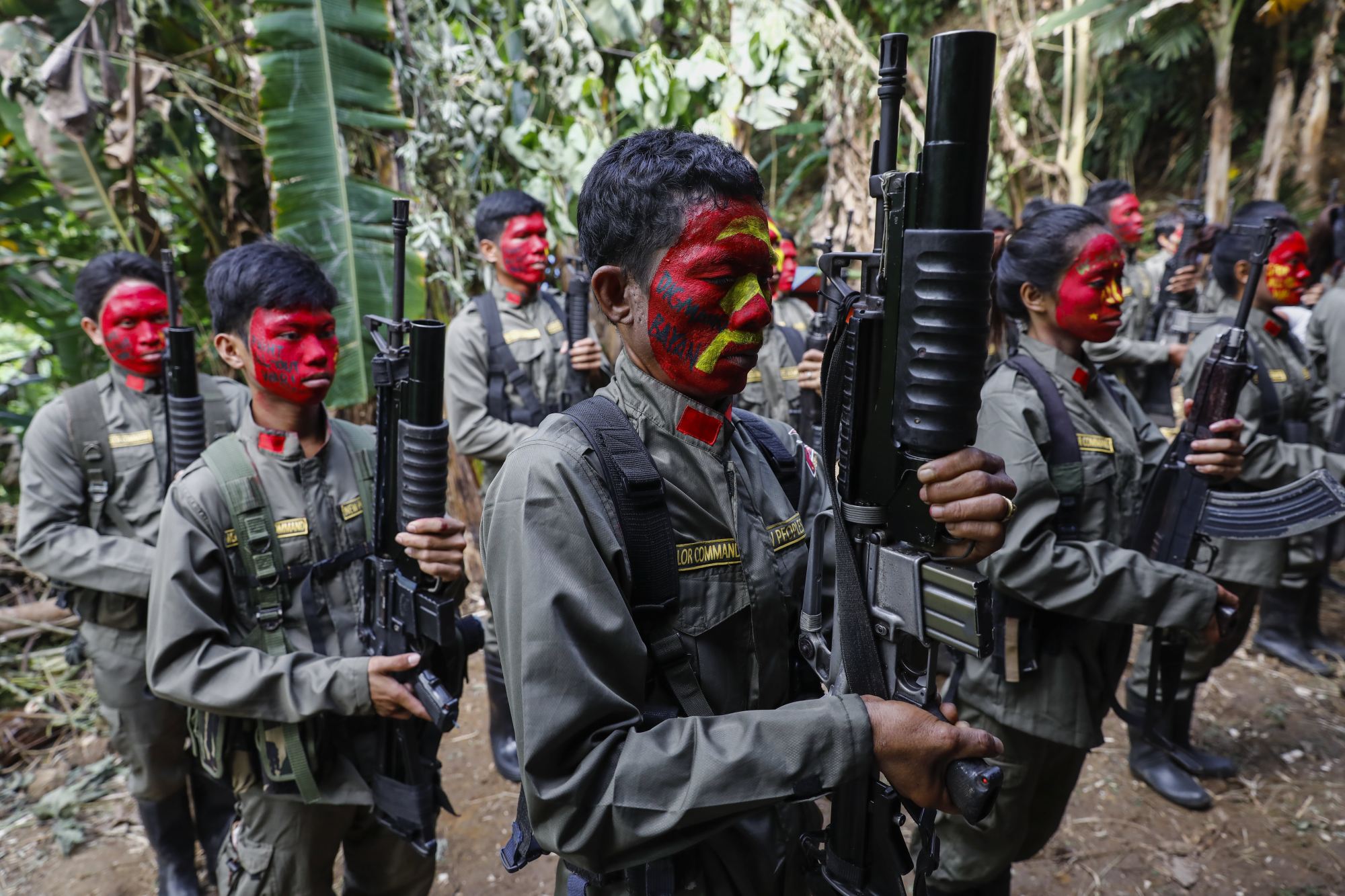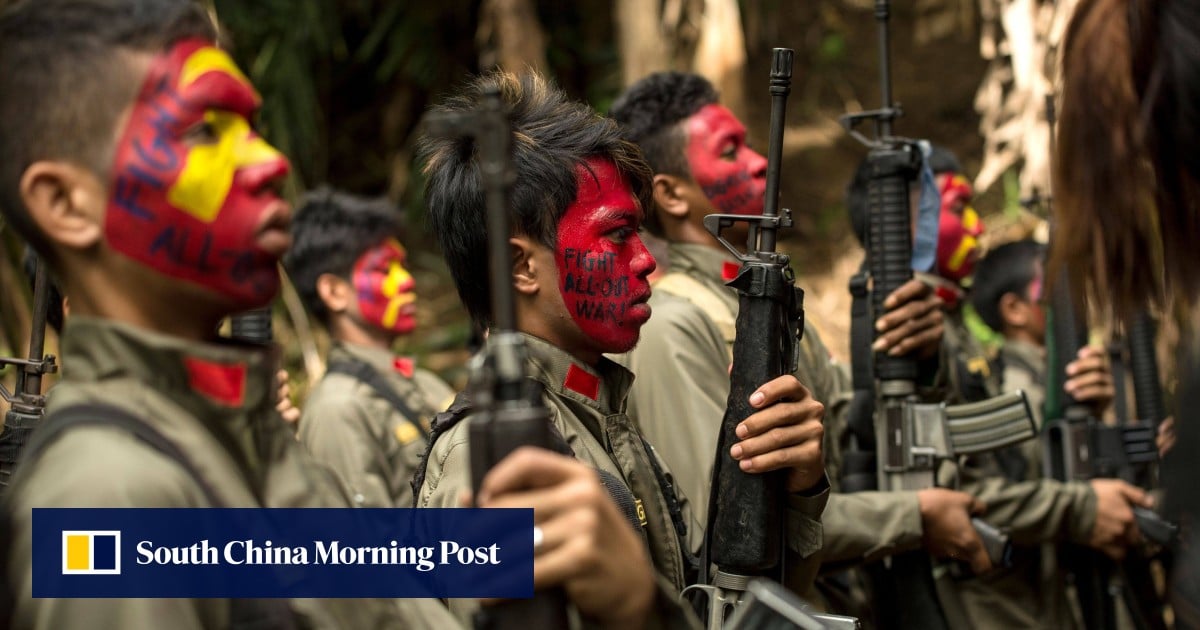“Why should the revolution seek absolution from the oppressors when it is the oppressors and exploiters who have done the people wrong?” the rebel leader told This Week in Asia on Thursday.
Philippines to probe influx of Chinese students in province near Taiwan
Philippines to probe influx of Chinese students in province near Taiwan
Communist guerillas forces, which are spread across the Philippines, mainly in rural areas, have been locked in armed skirmishes with the government since the late 1960s. However, the CPP says the fighting will carry on unless the roots of the armed conflict, namely widespread poverty and unjust policies, are addressed.
Marcos Jnr’s administration has been pushing a narrative that the decades-long conflict with the communist insurgents is coming to a close. Government and military officials have so far claimed that the rebels are on the run with their numbers dwindling, and just 11 “weakened” bases still operating in the country.
In March, the Armed Forces of the Philippines (AFP) promised to eradicate the guerillas by the end of that month.
National Security Adviser Secretary Eduardo Año claimed in early April that about 1,500 insurgents had initially expressed a willingness to take the amnesty deal. He also revealed the creation of 17 local amnesty boards to process applications by rebel returnees.
Julie de Lima, chairwoman of the National Democratic Front (NDF), the CPP’s political wing, said this week that Año’s claims were “ridiculous”.
“The mere fact that their figures are inconsistent and their deadlines keep on shifting is an indication of their failure to defeat the revolutionary forces,” de Lima said, referring to the military’s pledge to wipe out the rebel bases by the end of March.
Año said Congress agreed with the amnesty proclamation and these numbers represented the remaining members of the CPP, NDF and the New People’s Army (NPA), the CPP’s armed wing.
The AFP said they had facilitated the surrender of 2,447 rebels in the first half of 2023.
Valbuena denied that their forces were diminished, saying CPP guerilla bases had “regained their political and military bearing and are steadily expanding and strengthening”.
He also said the government was fabricating the number of surrendering rebels in order to portray itself as winning in the eyes of the public.
“Thousands upon thousands of unarmed people, whom the fascists suspect of supporting the revolutionary cause, have been arbitrarily accused outside courts and forced to ‘surrender’ under pain of unjust detention or death,” he said.
Human rights groups have also criticised the state’s reports of surrendering rebels, saying most are coerced civilians.
Last year, more than 20 residents of a Metro Manila slum claimed they were duped into posing as NPA members who gave up their arms. In 2019, the government ordered an investigation into doctored photos of surrendering rebels.

National advocacy group Karapatan recounted the high-profile abductions of Jhed Tamano and Jonila Castro in September 2023 and of Jose Maria Estiller in February 2024.
Tamano and Castro are two activists who were reportedly abducted while they were volunteering with fishing communities opposed to reclamation activities in Manila Bay. They say they were taken from the street by military officers in September last year and subjected to abusive interrogations.
During a government-organised news conference in October 2023, instead of corroborating the official narrative that they had surrendered as communist rebels, they revealed they had been abducted and forced to surrender under threats. They filed for a legal protection order after their public disclosure.
The military has denied the abduction, claiming the activists were kidnapped by the NPA before escaping and surrendering to the military.
Why Philippines’ Maoist rebellion may not end by 2025 despite Manila’s claims
Why Philippines’ Maoist rebellion may not end by 2025 despite Manila’s claims
CCTV footage showed Estiller being abducted in Batangas City by five armed and unidentified men. The Philippine National Police’s Criminal Investigation and Detection Group said Estiller had “voluntarily surrendered” to the Philippine Army’s 903rd Infantry Battalion. He is considered one of the most wanted terrorists in the Southern Tagalog region and faces multiple murder charges.
“It is mind-boggling how the authorities expect the public to believe its claim of ‘voluntary surrender’ by a person who has been in police custody for three days,” the group said.
In November last year, the government and the NDF released the “Oslo Joint Communique” to “resolve the reasons for the armed conflict”. The statement paved the way for a potential return to peace negotiations amid protracted talks since the mid-1990s.
While neither side has shut the door on possible talks, tensions have flared in recent months, with over a dozen clashes between soldiers and guerillas reported.

University of the Philippines professor Miriam Coronel-Ferrer, former chair of the government peace panel, told This Week in Asia that while some individuals could be lured by the government’s amnesty offer, it would not work without the acceptance of the CPP as an organisation.
“Amnesty should be part of a package,” she said, but added that right now, “there is no signal that the CPP-NPA is ready to give up its armed struggle”.
Coronel-Ferrer said it was unclear whether the government was using the amnesty programme as a platform for future negotiations or as “another way to divide and rule”.
Will Philippine peace talks end rebel conflict for good or ‘aid the enemy’?
Will Philippine peace talks end rebel conflict for good or ‘aid the enemy’?
The professor urged the government to come up with “a more strategic approach when it comes to the political front”.
De Lima dismissed the government’s amnesty bid, saying such an initiative must be “discussed within the framework of peace negotiations … based on justice and addresses the roots of the civil war”.
Instead, she demanded the state look into the more than 800 political prisoners, many of whom she said were participants of the NDF-led peace process who should be released, especially if the government was sincere in its commitment to a just and lasting peace.

